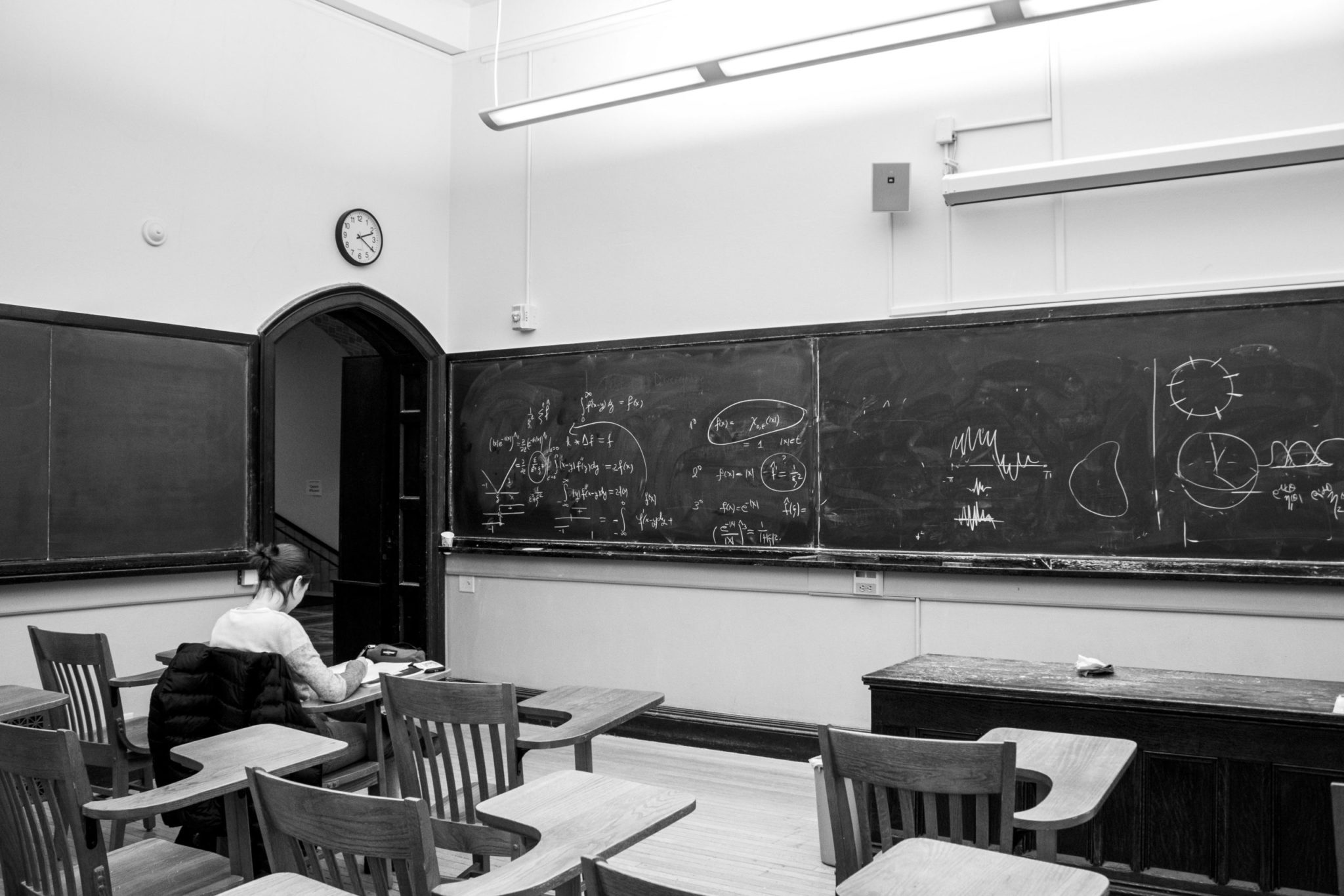
Zoe Berg, Photo Editor
A lack of preparation, imposter syndrome, under-resourced high schools, textbook costs and the student income contribution are just a few of the challenges faced by FGLI students pursuing a STEM education at Yale.
For all first-year students coming to Yale, there is a lot to navigate, including classes, extracurriculars and the resources Yale has to offer. For first-generation, low-income students pursuing a STEM degree, there are additional challenges. However, Yale programs such as ONEXYS, STARS, FSY and the Community Initiative are working to combat these issues.
“You can’t just expect students from underprivileged backgrounds to know what office hours are, to know how to talk to their professors when they’re struggling,” Natalia Taylor ’22, a FGLI student majoring in molecular, cellular and developmental biology told the News. “It’s not as intuitive as you might think.”
Burgwell Howard, dean of student engagement, said that a source of imposter syndrome for FGLI students entering Yale is not having received the same academic preparation as their peers.
This lack of foundation only adds to the difficulty of adjusting to the typical course load of STEM classes at Yale.
“I think that there is an assumption historically of what materials and backgrounds Yale students have been exposed to,” Howard said. “Because the composition of the undergraduate student body has changed so much over the past decade, we can’t just assume that everyone has had the same kind of exposures on the first day.”
Sandy Chang, associate dean for science and quantitative reasoning education, echoed Howard’s message, explaining how Yale can be intimidating for students who come from under-resourced backgrounds when they are lumped together with those who have already taken linear algebra and organic chemistry.
To fight these issues, Yale has funded programs to increase retention in STEM among FGLI students — one of them being the Science, Technology and Research Scholars Program — or STARS. Founded 25 years ago as a STEM tutoring service, STARS has evolved into various programs to help students navigate research and other aspects of Yale’s STEM education.
STARS is comprised of different programs — STARS I, STARS II, STARS Summer and the STARS faculty dinner series — all directed by Chang. Along with gaining research experience, the program pairs students with STARS alumni who assist participants with course planning and navigating STEM at Yale.
“Mentorship in STARS allows upperclassmen to impart their knowledge and experience to first years navigating the process,” Chang told the News. “It’s important to have a group of students who are like minded and look like each other. … Having students and mentors from the same background is so important.”
Chang stressed the importance of research involvement in the STARS program saying “[the] most important aspect of STEM education is acquiring knowledge yourself.”
As many FGLI students need to fulfill the student income contribution, it can be difficult to decide between pursuing research or taking an on-campus job.
Karin Gosselink, director of the Academic Strategies Program, explained that many students must make a choice between building up their resume for medical school and having a paid job. She said that students “aren’t necessarily able to have the opportunity to volunteer at a hospital because they have to work in order to help their family pay their bills.”
To combat this barrier, STARS helps students secure funding for their research. STARS Summer provides participants with a $2,500 stipend, and STARS II funds students in 10 hours of research a week during the academic year.
“Being able to not worry about finding time to split between my job and my research was really helpful, it gave me freedom to explore other interests and to focus on my academics,” Taylor, who is also an alumna of the STARS program, told the News.
Along with the STARS mentorship programs, Gosselink noted that FGLI peer mentorship groups for first years were started in 2019 by the Academic Strategies Program and the Community Initiative, and the program was expanded this year to include sophomores.
The program pairs first- and second-year students with upperclassmen peer mentors of the same major who provide resources and advising to the students.
“One of the central things we do is help provide students with information about resources and give them the support as they access them and sort of teach them how to access them,” Gosselink said.
Howard said that he makes an intentional effort to hire FGLI students in positions such as first-year counselors and peer liaisons.
By having FGLI students in these positions, he hopes that students will be informed about resources — such as peer tutors, STARS and other mentorship opportunities — at every level of advising.
“If you’re hearing it from a PL, you’re hearing it from a FroCo, you’re hearing from your dean and the FGLI newsletter, maybe you’ll take advantage of it,” Howard said.
John Hall, a lecturer in the Department of Mathematics, directs a summer program called Online Experiences for Yale Scholars — or ONEXYS — that prepares students without a strong STEM background for quantitative reasoning classes at Yale.
He told the News that new academic resources including enrichment sessions for the biology sequence have been very successful in supporting students who need additional help. However, he stressed the importance of continuing targeted programs like First-Year Scholars at Yale, in addition to the resources accessible to all students.
“If everybody takes advantage of [academic resources], then suddenly office hours are very crowded,” Hall told the News. “And the same students who might not have even sought out the resources before are less assertive and might not ask questions during office hours.”
In addition to academic resources and programs, there is an ongoing effort by FGLI students to address their needs.
Taylor is hopeful about the FGLI Pre-Health Community, a student group founded in 2020 that she will lead next academic year. Through mentorship and group workshops, she hopes to establish a strong community for FGLI students in all pre-health tracks.
In addition to STARS, Chang has created a STEM guide for first years that is sent out to all incoming students interested in STEM. The 43-page guide contains information from places to study, advice for pre-health students as well as course selection strategies. Before their arrival at Yale, Chang ensures the guide especially gets into the hands of FGLI STEM students.
“We have a lot of students coming from under-resourced backgrounds that have no idea what college is about,” Chang told the News. “FGLI students are brilliant, scholars just like everyone. They just lack information.”
There are currently 107 students in the STARS I Program.
Erin Bailey | erin.bailey@yale.edu
Aislinn Kinsella | aislinn.kinsella@yale.edu









